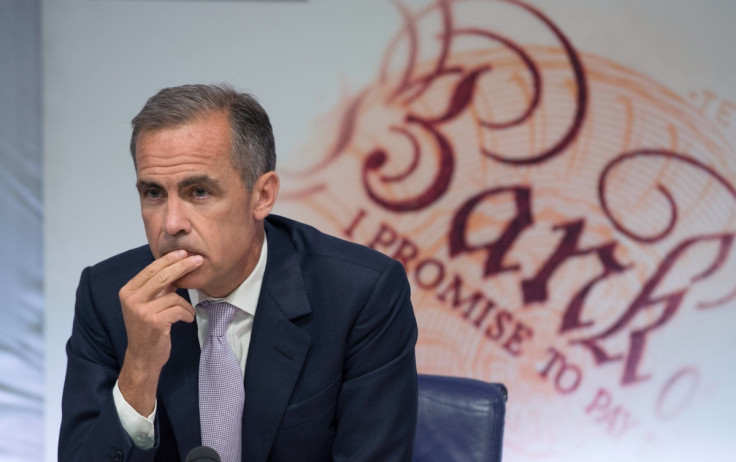Brexit: Bank of England governor Mark Carney hints at UK interest rate cuts over coming months
Governor Mark Carney says the central bank will do 'whatever is needed' to support economic growth.
Following the Brexit result, The Bank of England could cut interest rates as early as next month in its bid to support a rocky UK economy, according to Governor Mark Carney. The benchmark interest rate has remained unchanged at a record low of 0.5% since March 2009.
Addressing the business community from the Court Room of BoE on Thursday (30 June), Carney noted: "In my view, and I am not pre-judging the views of the other independent Monetary Policy Committee (MPC) members, the economic outlook has deteriorated and some monetary policy easing will likely be required over the summer."
The governor accepted there were risks to taking such action. "As we have seen elsewhere, if interest rates are too low – or negative – the hit to bank profitability could perversely reduce credit availability or even increase its overall price."
He reiterated the BoEwould take "whatever action is needed to support growth", attaching a caveat that: "Monetary policy cannot immediately or fully offset the economic implications of a large, negative shock. The future potential of this economy and its implications for jobs, real wages and wealth are not the gifts of monetary policy makers."
Despite a Brexit on the horizon, Carney said the UK has one of the most flexible economies in the world: "The question is not whether the UK will adjust but rather how quickly and how well."
He said that even before the 23 June vote, the Bank had observed the growing influence of uncertainty on major economic decisions. "Commercial real estate transactions had been cut in half since their peak last year. Residential real estate activity had slowed sharply. Car purchases had gone into reverse. And business investment had fallen for the past two quarters measured."
Given otherwise accommodative financial conditions and a solid domestic outlook, it appeared likely that uncertainty related to the referendum played an important role in this deceleration, the governor opined.
Carney said it now seems plausible that uncertainty could prove to be a "more persistent drag" on activity than the UK central bank had anticipated. "Moreover, its effects will be reinforced by tighter financial conditions and possible negative spill-overs to growth in the UK's major trading partners."

He said that a plan for the UK's current challenges would include a comprehensive strategy for engaging with the EU and the rest of the world – such as "clarifying the UK's future trading arrangements, calibrating its openness to migration, ensuring the continuity of capital flows, and confirming the appropriate regulatory framework for the UK financial system."
Carney also said UK banks currently have more than £600bn ($796bn, €719bn) of high quality liquid assets. "And as a backstop, in order to support market functioning, the Bank of England continues to stand ready to provide more than £250bn of additional funds through its normal facilities," he concluded.
Summing up the market mood before Mark Carney's speech, senior economist at Hargreaves Lansdown, Ben Brettell, said the FTSE and sterling were broadly flat on the day.
"Following the governor's words, the FTSE has just closed within a whisker of its highest level year-to-date, while sterling has lost a cent and a half against the dollar and more than a cent against the euro. Stock markets clearly love monetary stimulus far more than they hate Brexit-related uncertainty."
Howard Archer, chief UK economist at IHS Global Insight said there is "little doubt" that part of the Bank of England's package will be to cut interest rates from 0.50% to 0.25%.
"While there is a possibility that the Bank could eventually take interest rates down to 0.00% or into negative territory, we are far from convinced that they would do this."
© Copyright IBTimes 2025. All rights reserved.






















